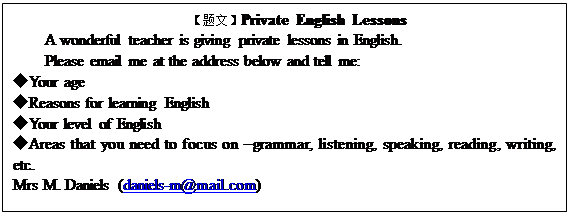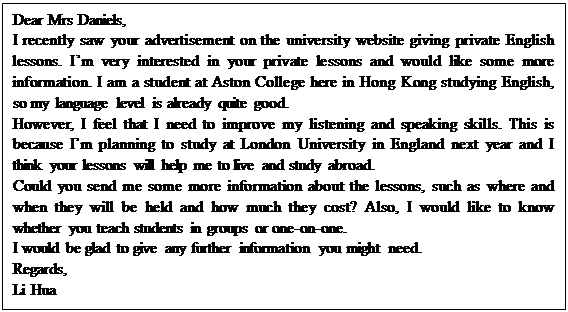题目内容
Roger Alvarez, 22, was one of the 52 percent of students who didn’t make it through his senior year at Manual Arts High School in Los Angeles.
He dropped out several years ago, but by the time he was in ninth grade, Alvarez says he already knew he wasn’t going to graduate.
“There’s a certain amount of knowledge you have to have when you enter in a specific grade, and I didn’t have it.” Alvarez says,“Every class I used to go in, I was like, ‘Do I know this? I don’t know this.’”
It was a shameful attitude, he tells his former English teacher, Antero Garcia, 29.
“You were determined to help me, but what was I willing to give? I could have actually tried.”
For his part, Garcia wants to know how he could have reached out to Alvarez better, but Alvarez says Garcia had always been helpful.
“I mean, you could cheer me up, and then I see other students doing way better,” Alvarez says,“So then, I get nervous. I get stuck, and then my motivation goes to the floor.” He felt the situation was hopeless.
“You talked to me like if I could do it, but inside me, I knew I couldn’t.” he tells Garcia,“I just didn’t want you to think that I’m…stupid.”
Now, school is a life tool that Alvarez says he’s missing—but his teacher isn’t to blame.
“Always, I just wanted you to know…you were a good teacher, and I always respected you.” he tells Garcia,“Some teachers, I felt like they only wanted to teach a certain group of people. But you looked at me and you paid attention.”
“Maybe it didn’t get me to graduate, but there’re a lot of teachers, they don’t take the time to take a look. And it was never your fault.”
Alvarez now works the night shift at a loading dock(码头). He still hopes to get his degree one day.
小题1:When Alvarez entered a grade, he was sure that ___________.
小题2:By saying “my motivation goes to the floor”, Alvarez meant __________.
小题3:In the opinion of Alvarez, most teachers _______.
小题4:The passage mainly tells us that _________.
He dropped out several years ago, but by the time he was in ninth grade, Alvarez says he already knew he wasn’t going to graduate.
“There’s a certain amount of knowledge you have to have when you enter in a specific grade, and I didn’t have it.” Alvarez says,“Every class I used to go in, I was like, ‘Do I know this? I don’t know this.’”
It was a shameful attitude, he tells his former English teacher, Antero Garcia, 29.
“You were determined to help me, but what was I willing to give? I could have actually tried.”
For his part, Garcia wants to know how he could have reached out to Alvarez better, but Alvarez says Garcia had always been helpful.
“I mean, you could cheer me up, and then I see other students doing way better,” Alvarez says,“So then, I get nervous. I get stuck, and then my motivation goes to the floor.” He felt the situation was hopeless.
“You talked to me like if I could do it, but inside me, I knew I couldn’t.” he tells Garcia,“I just didn’t want you to think that I’m…stupid.”
Now, school is a life tool that Alvarez says he’s missing—but his teacher isn’t to blame.
“Always, I just wanted you to know…you were a good teacher, and I always respected you.” he tells Garcia,“Some teachers, I felt like they only wanted to teach a certain group of people. But you looked at me and you paid attention.”
“Maybe it didn’t get me to graduate, but there’re a lot of teachers, they don’t take the time to take a look. And it was never your fault.”
Alvarez now works the night shift at a loading dock(码头). He still hopes to get his degree one day.
小题1:When Alvarez entered a grade, he was sure that ___________.
| A.he wasn’t going to pass the class |
| B.he would do better than other students |
| C.he might learn an amount of knowledge |
| D.he would try his best to learn at class |
| A.he hid his goal from others | B.he lost heart gradually |
| C.he built up his motivation | D.he fell to the ground completely |
| A.paid no attention to teaching | B.had no time to read books |
| C.didn’t care about what he did | D.showed no respect to students |
| A.a dropout complains about being treated badly |
| B.a dropout plans to get his degree again |
| C.a dropout shows respect for not graduating |
| D.a dropout has thanks to his teacher not blame |
小题1:A
小题2:B
小题3:C
小题4:D
试题分析:罗杰几年前辍学了,但他向在校期间帮助过自己的英语老师加西亚表示感谢,希望自己有一天会拿到自己的学位。
小题1:细节理解题。从第三段最后一句可知他总是认为自己没有应该具备的知识,所以他认为自己是不会升级的。B、C、D与原文的意思相反。故选A。
小题2:细节理解题。根据第七段的So then, I get nervous, I get stuck可知他虽然得到了老师的鼓励,但是其他同学做得更好,所以他会变得紧张,感觉被困住,因此他的学习动机一蹶不振,因此选B。A、C、D的解释与语境不符。故选B。
小题3:结合倒数第三段的第二句可知很多老师是不关心他做什么的,因此选C。A没有事实依据;B文中没有提及;D中no太绝对。故选C。
小题4:主旨大意题。本文主要介绍了一位辍学者和一位在学校期间关心他的英语老师之间的交谈,说明了他并不会责备老师而是感谢这位老师在校期间对他的鼓励,所以D符合主旨。故选D。

练习册系列答案
相关题目

